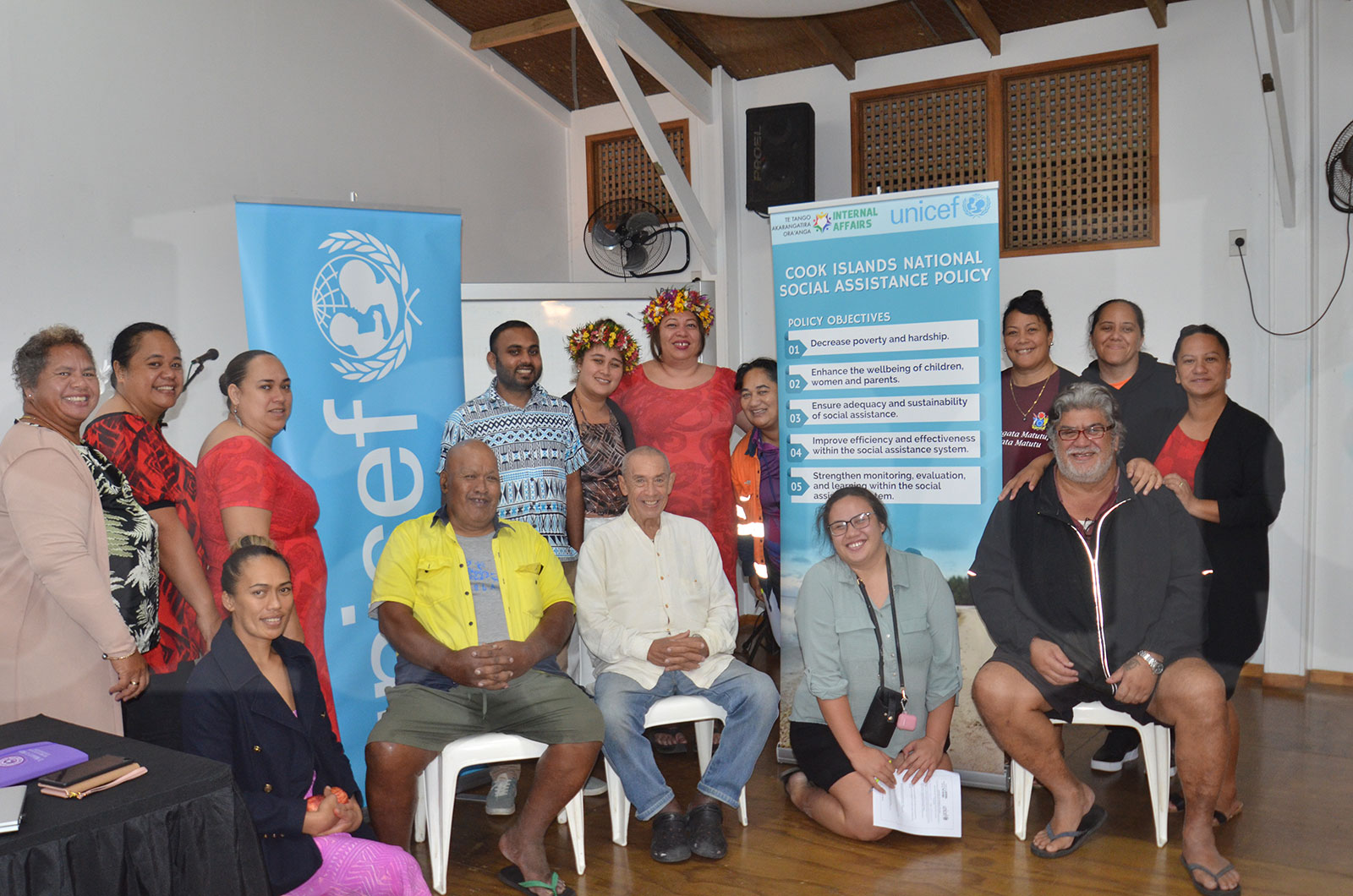Proposed policy to improve and strengthen social welfare services
Saturday 17 June 2023 | Written by Melina Etches | Published in Economy, National

The participants at one of the Cook Islands National Social Assistance Policy public consultations held at the New Hope Church in Tutakimoa. MELINA ETCHES/23060635
Consultations have been held in Rarotonga and Aitutaki to share reviews and have discussions with members of the public on the proposed Cook Islands National Social Assistance Policy.
Grace Chynoweth, Ministry of Internal Affairs’ director of Welfare Services, said, “currently we don’t have a National Social Assistance Policy.”
Around five years ago a researched review was done by the Economic Policy Research Institute (EPRI) with the United Nations Children’s Fund (UNICEF) and the Cook Islands Government.
Chynoweth said the review presented guidelines in regards to improving and strengthening social welfare services in the country.
One of the main recommendations was for government to look into developing a National Social Assistance Policy.
The Cook Islands National Social Assistance Policy’s objectives are to:
- Decrease poverty and hardship,
- Enhance the wellbeing of children, women and parents,
- Ensure adequacy and sustainability of social assistance,
- Improve efficiency and effectiveness within the social assistance systems, and
- Strengthen monitoring evaluation and learning within the social assistance system.
Chynoweth said the aim of the consultations was “to present and have discussions about the stakeholders’ findings, the consultants’ reviews, what other challenges are and what is missing from the draft, etc”.

Grace Chynoweth, Ministry of Internal Affairs director of Welfare Services. MELINA ETCHES/23061507
“In the draft policy what has been highlighted are the gaps in the system that we need to look at.”
Some of the inclusions in the national policy are to “decrease the poverty and hardship” among the vulnerable, the Destitute Benefit is adjusted to ensure that recipients are receiving more equitable support, social assistance for persons with disabilities is redesigned to assist in increasing access to education, more opportunities and participation in society.
To enhance the wellbeing of children, women and parents, the policy is looking at the age eligibility for the child benefit to be increased to include 17 -18-year-olds who are still attending school to ensure adequate support to families to encourage higher rates of education among youth.
In the policy a top-up mechanism for the child benefit is being proposed to provide additional support to families for children with disabilities as well as a child care subsidy programme.
Maternity leave allowance is also being proposed to be extended from six weeks to 14 weeks of paid leave for mothers, and paternity leave to two weeks of paid leave for fathers.
“We will not be able to fix all problems, but it will strengthen the current system,” said Chynoweth.
“We would like to convince government to support these recommendations and to implement them.”
The policy is planned for the next five years and is focused on the benefits, on how to improve and developing new initiatives to address the new challenges.
Chynoweth noted that the biggest issue raised from the discussions was about the lack of caregivers, which will be addressed in a different policy – Te Kopu Tangata Matutu.
“We have an aging population and the culture has changed.
“It is becoming a concern for our people that there are not enough caregiving services here and most families are now living overseas…”
During consultations the mentality was that all beneficiaries should be increased, said Chynoweth.
“I believe it’s important that we look at the priorities, it doesn’t mean we are ignoring others, we are prioritising…”
Internal Affairs is now compiling all the relevant feedback from the consultations, the ministries and non-government-organisations (NGOs).
In Aitutaki a great turnout of over 60 people attended the public consultation, however, on Rarotonga there was a dismal turnout at the two meetings.
Chynoweth said she would like to respectfully encourage the community to attend public consultations to share their concerns and views.














































